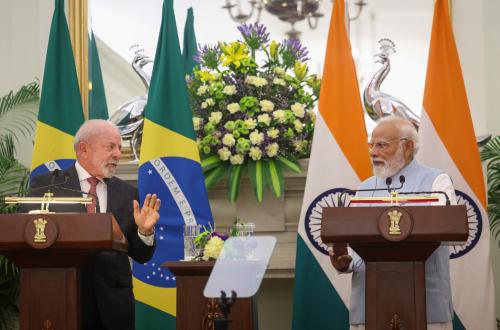D.C. PATHAK Human beings have been given the rare gift of 'discretion' which can be defined as the 'pause' one makes to allow for application of mind before some 'action' was initiated in response to a situation. In a way this is the exercise of option in 'decision-making' based on a quick evaluation of pros and cons of what had been noticed or reported. This is a cerebral call. In life there is a constant interplay of knowledge and response - of 'gyan' and 'karma' - and there is no escape from that. Only a thinking person can lead a life of fulfilment for what it means is a conscious movement on the path of self improvement, honest pursuit of material advancement and voluntary discharge of one's duties by the family and the larger society. Today, maintenance of physical fitness is as urgent as the mental health since both are interlinked in a manner that was new - the mandate of life, it is discovered, demanded application of mind behind any decision or action big or small, was taken. Advent of the Age of Information consequent on the success of IT revolution, has made it doubly important that only knowledge-based decisions were reached at every step which meant also that an analytical mind was intrinsic to success in these times. Absorbing information that was relevant is necessary to read the 'opportunities' and 'dangers' in the environment which would enable an individual to make a gainful advance or keep from avoidable risks. Importance of information presupposes significance of the power of observation, a certain skill for accessing what one was looking for and the ability to separate grain from the chaff. Digitisation in various fields of national, business and organisational life has not only led to the phenomenon of a vast amount of information being thrown up on any subject but also encouraged the practice of technology-based data analytics. This is a great advantage at the 'tactical' or 'operational' level but is not a substitute in any way of the 'strategic' requirement that only human intervention could fulfil in any significant decision- making. The much talked about 'reskilling' is largely a programmed effort to get an executive to handle larger amount of information on-line and to do 'collation and analysis' of data to cull out meaningful deductions from the information on record. Computers however, work on the 'input output principle' and the signals produced by them would reflect that limitation. Even the so-called 'machine learning' represents an advanced programming that allows the system to make an 'insider's reading' out of the patterns set for it and produce 'indicators' that would further help to determine the choice of response or course of action. 'Machine learning' is an aid as far as production of analysed findings are concerned and it could even suggest some 'directions' for further action but all of this does not detract from the indispensability of application of human mind and decision-making power, for fixing 'policy' or 'strategy' of the organisation. Over a period what digitisation has done is to push a person high or low in the organisation's hierarchy, into 'mechanical' dependence on the online information and the computerised 'deductions' made on it. This has the effect of 'shrinking' the work outlook of the employee to a mere 'compliance' mode in regard to the do's and don'ts of the desk. Reskilling should not aim at multi-tasking alone but basically also at creating awareness about utilising only 'reliable' data in these days of misinformation, about the need for keeping 'security' of communication intact and about the importance of marshalling information that would help 'knowledge-based' decision making at any level. On the whole the capacity to think is on a discount and so is the 'spirit of inquiry' that is basic to acquisition of knowledge. 'Google search' has taken away the importance of a healthy memory that was an asset in any circumstance and dampened the analytical orientation of the mind that could be developed right from a young age. It is on the base of an analytical bend of mind that the power of 'imagination' can be built - 'imagination is more important than knowledge' is what was famously said by Albert Einstein. Any work methodology that does not put a premium on mental involvement and 'forward thinking' can not serve the best interests of the organisation or corporate body since it passes on the cumulative burden of knowledge-based decision-making on the leadership by depriving the latter of a healthy feed back from below. There is a sudden surge of the idea of using Artificial Intelligence (AI) for enhancing productivity by making technology more 'smart' - being 'smart' can be defined as adoption of a strategy where output increases 'per unit of resource' whether it is money, manpower or time. Technology makes a human process 'smart' and AI further 'smartens up' the technological procedures. AI makes it faster to identify what was not working optimally in the system and what could be done to maximise the outcome and its end result-profitability. What is more important, it substitutes for a human response in some simpler ways - it can never be the total replacement for human mind that was gifted with 'discretion' and the capacity to 'calibrate' the response while handling a situation. Robots that can serve customers in a restaurant, gadgetry at home that can be managed through remote instructions or the invention of driverless cars are all in the news but AI applications are so far centred more usefully, around scanning of multiple data to produce flag points of 'alert' and include precise - looking indicators for 'action' as far as possible. In a limited way only, it has a usage for minimising human intervention required for determining the course of action. In essence, AI marks a further advancement of technology-driven processes but does not set a 'competition' with human intellect. In a classical illustration, a major power could have developed a nuclear missile that would be ready to fire off on receiving a 'trigger' about the enemy action- developed through use of AI - but it would not like to make this counter-response totally automatic and would like to retain the element of 'authorisation' at a prescribed level. AI as an advanced technology would be of immense help in upgrading business operations, production centres and work protocols but in matters of 'policy' formulation, defence responses and counter-measures in information warfare, the primacy of human decision-making would remain in place. It is necessary for institutions, organisations and business corporates to check the trend of rising mediocrity on account of the mono-culture created by the preponderance of computer-driven work. There is faster 'delivery' no doubt but the work place was becoming impersonal and everybody's preoccupation with the allotted task that required little interaction with others within the organisation, was adding to that. Technology-aided work needed little supervision and this affected the leadership quality of the 'bosses' who found it convenient that they did not have to get involved with their people at a personal level and were not called upon to provide 'participative and nurtural' guidance to them. This had become pronounced in the era of 'work from home' set in by Covid emergency. However, in the US in particular, corporate leadership is already taking steps to get the lower and middle level work force back in office like in the earlier times. In ultimate analysis, it seemed that the facility of 'work from home' was adversely affecting productivity for various reasons - one being the emphasis on 'mere compliance' that did not encourage 'thinking' about the job in a manner that could suggest organisational improvement or increased output. Covid aftereffects have produced a welcome churning of thoughts on corporate strategy, importance of human interaction in business and the presumed competitive advantage accruing from purely technology-driven human endeavour. Somewhere, the larger question of whether technology was 'aiding' or in fact 'trying to substitute' for human play in all fields, is appearing on the horizon and inviting new ideas on future man-machine equation. In Indian context, however, march of 'digitisation' has to be kept up for betterment of governance, upgradation of public services and in particular for the management of law and order that safeguarded the right to equality before law for every citizen over the demands for special treatment by certain groups including minorities. The country fortunately has no dearth of working hands and 'thinking minds'. Prime Minister Narendra Modi is trying to strengthen the former with technology and encouraging the latter to create their own space through start ups and contribution made, in their spare time, to ways and means of strengthening internal cohesion and national orientation of the people here. (The writer is a former Director of Intelligence Bureau. Views expressed are personal)
The new age is eroding the capacity to think
- by Rinku
- January 15, 2023 2 minutes

generation.(photo:unsplash)











